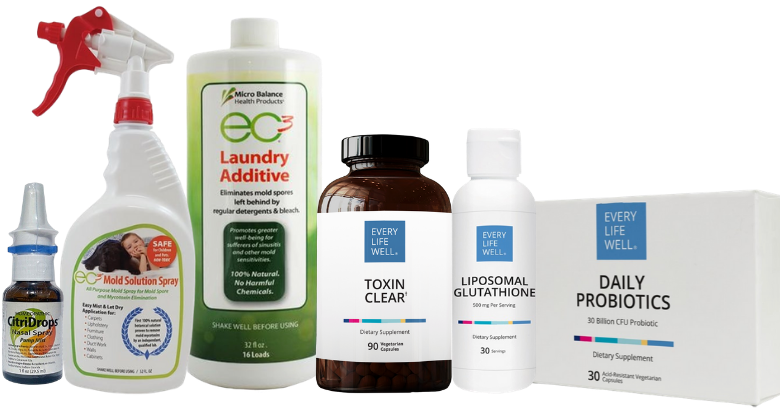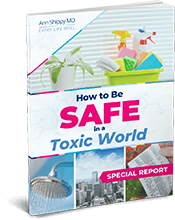Getting Better With Age
Do we have to age and die? This question fuels much of my work in my practice and my ongoing studies. People have pondered this question since the beginning of human history, but as the field of epigenetics is rapidly expands, we are learning more and more about what regulates and changes gene expression. We now can ask new questions, like this:
What if we could “turn off” or “dial down” the genes responsible for aging?
Certainly, over human history lifespans have increased, but in more recent years we’ve grown accustomed to the fact that quality of life decreases with age, the “healthspan” decreases. What would be the fun of living longer if it was filled with more sickness and discomfort?
I firmly believe that just because chronic disease, cognitive decline and loss of mobility is common with increased age, it is not normal. This decline in health is likely related to a variety of diet and environmental factors that influence the epigenome and accelerate aging. Luckily, epigenetic information is reversible.
In this article, you will learn more about:
- Epigenetics
- The role of epigenetics in research on aging
- 6 ways to promote positive changes in epigenetics and slow signs of aging
Epigenetics is the study of the epigenome, which literally means “above the genome.” Whereas we can’t change our genes, we can influence how those genes are expressed, meaning what genes are “turned on” and which ones are “turned off”—or “dialed” up or down. Epigenetics refers to the function of the gene. Since I practice Functional Medicine, it’s no surprise that I find this topic so exciting and relevant to my work!
To learn more about the science behind epigenetics, please read my article Epigenetics 101: Telling Your Genes How To Behave. My TEDx talk is also available to watch here on this page.
Epigenetics is a fascinating, and rapidly expanding, field of study and is truly changing our understanding of aging. Where it was once thought that our genes were our destiny, epigenetics truly allows us to see how much influence we have over our health, our healthspan and how we age.
Let me give you an example. The “4” variation of the ApoE gene is connected to Alzheimer’s disease. In my practice, I see patients with this gene who have early onset of dementia and others, with the very same gene variation, who are cognitively healthy and vibrant into their later years. How can this be? It has everything to do with epigenetics!
We can positively influence our epigenome in the following ways:
- Eating healthfully
- Lowering stress
- Exercising and movement
- Reducing exposures to toxins
- Nourishing and balancing the microbiome
- Quitting smoking
Epigenetics Research And Aging
Research is giving us clues about how to extend our lifespan. Dr. David Sinclair and Dr. Matthew LaPlante wrote a recent book Lifespan: Why We Age – and Why We Don’t Have To that dives into the recent research on using epigenetics to slow or reverse aging. Here are some of their findings:
- In a mouse study, elderly, blind mice were given a combination of three genes and then the genes were “turned on” via epigenetics. The mice could see again.
- In another mouse study, 4 genes were turned on in prematurely aging mice and their lifespan was extended by 30%.
- In a small human study, participants were given growth hormone, DHEA (another hormone) and metformin (a diabetes medication) and their biological ages decreased by 2 years.
You can read an excerpt from Lifespan that goes over more details of these studies here.
My own research into the scientific literature reveals many more exciting clues – and ones that I can implement into my medical practice now.
For example, there is a strong epigenetic effect in the body that comes from the microbiome, the community of organisms living in the gut. Not only does the microbiome produce nutrients, support healthy digestion and even a healthy immune system, but it also influences our genetic expression.
Epigenetic influence from the microbiome can affect obesity, cardiovascular disease and metabolic health. The microbiome also affects brain health. Epigenetic changes produce psychological changes and can improve mental health. Epigenetics can affect the immune system and the development of autoimmunity. Epigenetic changes in gene expression can even affect future generations.
6 Ways To Use Epigenetics To Slow Aging
With all this new and exciting research, what can we do in our lives to favorably influence the epigenome? Here are some ideas:
1. Use food as medicine. You likely already know how passionate I am about the Paleo diet. This nutrient-dense and low-toxin way of eating mimics how our ancestors ate, which resonates with the human body on the genetic level. Our genes literally recognize and positively respond to whole, real food!
2. Consider fasting. Caloric restriction, often through fasting, is well-documented in scientific studies as a successful anti-aging intervention that can modify epigenetics. One reason for this benefit might be that caloric restriction lowers inflammation in the body, which can enhance both the health span and lifespan.
Fasting also increases autophagy, a process where cells detoxify, clean-up and repair so that they function more efficiently. Since tolerance to fasting will vary from person to person, it can be important to work with your provider to find an approach that works for you. Options that I use in practice include:
- Intermittent fasting, also known as time-restricted eating, is a simple practice where you stop eating overnight for 12-16 hours and enjoy healthful eating during the rest of the day.
- Fasting Mimicking Diet. The Fasting Mimicking Diet, also known as Prolon, was developed by Dr. Valter Longo to gain the benefits of a 5-day fast without the downsides. This simulated fast has the potential to increase performance, decrease weight, improve cellular function and improve metabolic function. (Click here to learn more about Prolon).
3. Exerise. As if you didn’t already have many reasons to exercise, let’s add one more. Exercise modulates epigenetics. Raising your heart rate in intervals seems particularly beneficial, which is good news because you don’t have to do long cardio sessions to get the benefits. I typically recommend my patients exercise every 24-48 hours, if not daily, and preferably in the mornings.
4. Meditate. Meditation is another tool that we have to lower stress and positively influence genetics. If you are new to meditation, I recommend the Ziva Method or the Muse device. There are also many apps, such as Calm and Headspace, that offer short, guided meditations.
5. Detoxify. Exposure to environmental toxins heavily influences gene expression– and not in a good way. The good news is that using Functional Medicine approaches to remove toxins from the body can help reverse the epigenetic changes. Toxins can find their way into cells and sit directly on the DNA. This is something that I now test for in my practice. I had a patient who had aflatoxin (a toxin produced by mold) sitting on a cytochrome P450 gene, which is key for liver detoxification!
Here are some recent articles about toxin exposure and detoxification strategies that might be helpful:
- Algal Blooms: The Environment And Your Health
- PFAS: Health Risks And How To Protect Yourself
- Banish These Five Chemicals From Your Home To Boost Fertility
- Ten Toxins To Easily Avoid
6. Use supplements. When it comes to healthful aging, supplements are one of my favorite tools to really target the results that you desire. There are many options to choose from when putting together a personalized supplement plan. Here are a few that I frequently use:
- Collagen –As we age, the skin can become dryer and more wrinkled as the collagen network breaks down. Restoring collagen, often through supplementation, helps the skin hold on to moisture and diminish fine lines. Collagen is also important for the health of bones, joints and all connective tissue in the body. (NOTE: collagen powders can provoke histamine reactions in those who are sensitive to it, so notice if you feel fatigue or allergy-like symptoms after ingesting it, discontinue use).
- Resveratrol, curcumin and sulforaphane are three unique compounds that work at the epigenetic level for anti-aging effects. Resveratrol is the antioxidant compound in red wine, curcumin is the anti-inflammatory competent of turmeric, and sulforaphane is powerful detoxification support found in broccoli and other cruciferous vegetables. I’ll often recommend these supplements either individually, or in a combination for most patients.
- Probiotics – because the health of the microbiome is so foundational for the health of the body as we age and has such a profound impact on epigenetics, I often recommend taking a daily, high-quality probiotic supplement, along with eating a fiber-rich diet and enjoying fermented foods.
Although rapid aging is common, it is not normal and should not be accepted! Many of the reasons behind chronic disease and reduced healthspan come down to diet, lifestyle behaviors and exposure to environmental toxins. It’s not surprising to me that our genes don’t like processed food, sedentary behavior and chronically high stress. Our genes didn’t evolve under these conditions and they respond poorly in the face of our modern lifestyles.
Be empowered with the mindset that you can positively modulate your gene expression and you have a profound capacity to heal. It just takes getting back to some of the foundations of health including eating well, moving, destressing, and reducing chemical exposures. We are learning more about this exciting topic every day, and I can’t wait to share more with you as the science of epigenetics expands.













